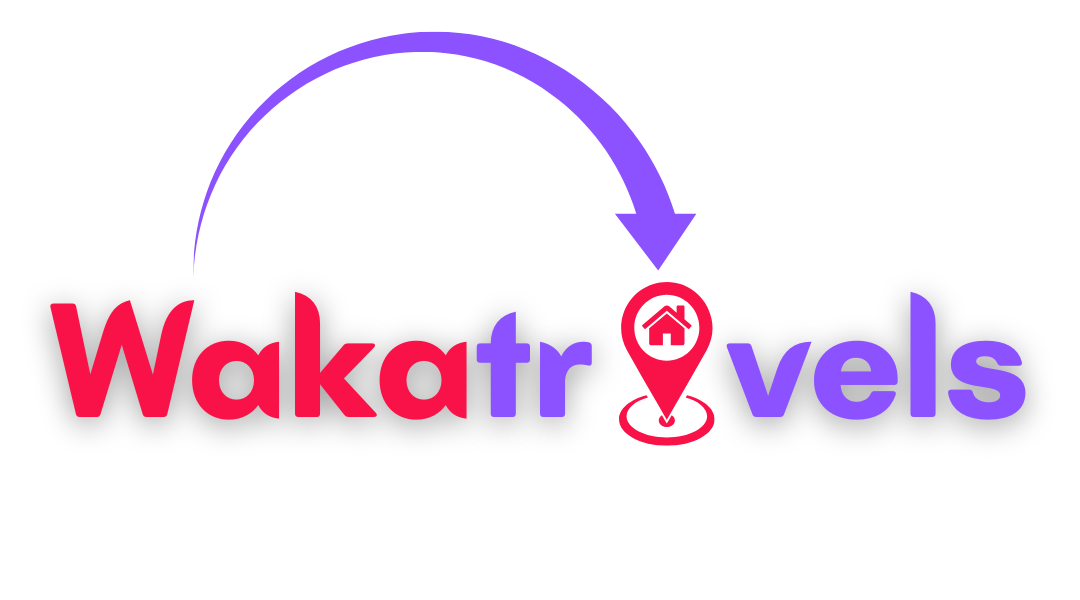
When Nigerian business opportunities are mentioned, the initial reaction from many outsiders is usually hesitation. There’s a common perception that the market is unstable, overly complex, or too high-risk to bother with. It’s a narrative shaped largely by sensational headlines, not real data.
But the numbers tell a different story. Strong returns—sometimes upwards of 30%—are quietly shifting the mindset of global investors. Interest is growing, and not without reason.
The truth is, Nigeria is not a one-dimensional investment environment. It has its challenges, like any emerging market, but it also boasts the largest economy in Africa, a rapidly growing population, and a wave of innovation across tech, real estate, agriculture, and more. For those willing to look beyond the noise, the opportunities are substantial—and often overlooked.
Navigating the Nigerian Investment Landscape
Nigeria’s economy is fascinating – a complex mix of old-school resource wealth and cutting-edge digital innovation. With 214 million people (and growing), a median age of just 18, and an expanding middle class hungry for new products and services, the country offers serious growth possibilities that many mature markets simply can’t match.
But before we dive into specific sectors, let’s address the elephant in the room: investing in Nigeria requires patience, local partnerships, and a stomach for regulatory curveballs. During my first venture there in 2019, I learned this lesson the hard way when a seemingly straightforward import license took three months longer than promised. My Lagos-based partner just laughed. “You’ll adjust to Nigerian time,” he said. He was right – I did.
Top 7 Profitable Business Investments in Nigeria
1. Fintech and Digital Payment Solutions
Nigeria’s fintech revolution isn’t coming – it’s already happened. With over 170 million mobile connections and a banking system that historically left many underserved, digital payment solutions are experiencing explosive growth.
When I visited Lagos’s “Yabacon Valley” tech hub last year, every other conversation revolved around payment apps, crypto solutions, or banking alternatives. Companies like Flutterwave and Paystack (the latter acquired by Stripe for $200+ million) have shown what’s possible.
Investment angle: Look for fintech startups focusing on cross-border payments, merchant services, or financial inclusion for the unbanked. Early-stage investments can start around $50,000-100,000, while larger Series A rounds typically require $500,000+.
2. Agribusiness and Food Processing
Here’s something you might not know: Nigeria imports over $10 billion worth of food annually despite having 84 million hectares of arable land. This disconnect creates a massive opportunity in agricultural production and processing.
I spoke with Emma, a British investor who put $300,000 into a cashew processing facility in Ogun State in 2021. “The math was simple,” she told me. “Nigeria grows tons of raw cashews but ships them to Vietnam for processing. By processing locally, we cut shipping costs, employ local workers, and still export a higher-value product.”
Investment angle: Consider ventures in processing facilities for cassava, fruits, nuts, or grain production. Cold chain logistics – basically refrigerated supply chains – are particularly lacking and ripe for investment. Minimum viable investments typically start around $150,000-250,000.
3. Renewable Energy Solutions
Let me paint you a picture: I’m sitting in a high-end Lagos restaurant in 2020 when suddenly everything goes dark. Ten seconds later, the backup generator kicks in, and dinner continues without anyone missing a beat. Power cuts are so common that businesses budget for generators as essential equipment, not contingencies.
This energy gap represents a massive opportunity for solar installations, battery storage, and energy management systems. With Nigeria committing to net-zero emissions by 2060 and facing chronic power shortages, renewable energy investments can address both environmental goals and practical needs.
Investment angle: Solar installation companies, mini-grid developers for rural communities, and battery storage solutions all offer entry points. Initial investments range widely from $75,000 for smaller-scale operations to several million for larger grid projects.
4. Healthcare Services and Telemedicine
Nigeria’s healthcare system faces significant challenges: the doctor-to-patient ratio is roughly 1:5,000 (compared to the WHO-recommended 1:600), medical equipment is often outdated, and many Nigerians travel abroad for treatment.
During the pandemic, I watched my friend’s telemedicine startup go from concept to 50,000 consultations in just 11 months. The demand was already there – COVID just accelerated adoption.
Investment angle: Specialized clinics, diagnostic centers, telemedicine platforms, and pharmaceutical distribution offer compelling opportunities. Equipment leasing businesses that help hospitals access modern technology without massive upfront costs are particularly interesting. Budget at least $200,000-500,000 for meaningful participation.
5. E-commerce and Logistics
Nigeria’s e-commerce market is projected to reach $75 billion by 2025. Yet unlike more mature markets, last-mile delivery and payment infrastructure are still evolving, creating opportunities for investors who can solve these logistical challenges.
I remember ordering a laptop online while staying in Abuja and being amazed when the delivery person called to ask if I could meet them at a nearby landmark because my address “wasn’t showing up properly on the map.” This experience highlighted both the growth potential and the existing gaps.
Investment angle: Specialized e-commerce platforms, last-mile delivery solutions, warehouse automation, and logistics optimization software all represent solid investment opportunities. Initial capital requirements range from $100,000 for tech-focused solutions to $500,000+ for operations with physical infrastructure.
6. Education Technology
With over 20 million students in primary education alone and a growing young population, Nigeria’s education sector is bursting with potential. Traditional infrastructure hasn’t kept pace with demand, creating openings for tech-enabled learning solutions.
When schools closed during the pandemic, my colleague’s daughter in Lagos continued learning through a locally developed e-learning platform. The company went from serving 5,000 students to over 100,000 in just four months.
Investment angle: Look at exam prep services, vocational training platforms, credential verification systems, and school management software. Many edtech startups seek $50,000-250,000 in early funding.
7. Real Estate Development
Nigeria faces an estimated housing deficit of 17 million units. In rapidly growing urban centers like Lagos, Abuja, and Port Harcourt, properly positioned real estate investments can yield substantial returns.
However – and this is crucial – real estate requires even more local expertise than other sectors. Land title issues can be complex, and construction timelines often stretch beyond initial projections. My friend spent two years securing clear title for a property in Lagos that should have taken two months.
Investment angle: Mid-market residential developments, student housing near universities, and commercial spaces in emerging business districts offer the most promising returns. Real estate investments typically require $500,000+ for meaningful participation.
Legal Considerations for Foreign Investors
Nigeria has gradually relaxed restrictions on foreign ownership, but certain regulations remain essential to understand:
- Corporate structure requirements: Most foreign investors operate through Limited Liability Companies (LLCs) registered with the Corporate Affairs Commission.
- Minimum capital requirements: Foreign companies must transfer at least $100,000 in capital equipment or cash to operate in Nigeria.
- Sector restrictions: Some industries maintain local ownership requirements, though these have been relaxed in recent years.
- Repatriation of funds: While officially unrestricted, currency controls can sometimes delay profit repatriation.
I learned the hard way about the importance of thorough due diligence when my first Nigerian partnership hit regulatory hurdles I hadn’t anticipated. A good local lawyer would have flagged these issues immediately – lesson learned!
Building Your Nigeria Investment Strategy
If you’re considering Nigerian investments, here’s my field-tested approach:
- Start with site visits – nothing replaces on-the-ground research. I spent three weeks traveling between Lagos, Abuja, and Port Harcourt before making my first investment decision.
- Develop local partnerships – success often depends on having trustworthy Nigerian partners who understand the business environment.
- Take a portfolio approach – spread investments across several opportunities to manage risk exposure.
- Be patient with timelines – regulatory processes and project execution typically take longer than initially projected.
- Consider investment structures carefully – whether direct ownership, joint ventures, or convertible notes, structure matters enormously for both tax implications and operational control.
The Reality Check: Challenges You’ll Face
Let’s be honest – investing in Nigeria isn’t all upward graphs and champagne celebrations. You’ll likely encounter:
- Infrastructure limitations – power outages, transportation bottlenecks, and connectivity issues can impact operations.
- Currency volatility – the Naira has experienced significant fluctuations, affecting dollar-denominated returns.
- Regulatory unpredictability – policies can change with limited notice.
- Security considerations – while major business centers are generally stable, security assessment remains important.
The first time I experienced Lagos traffic, I was convinced we’d never reach our destination. Five hours to travel 27 kilometers taught me to build extra time into every meeting schedule. These practical realities need factoring into any business plan.
My Personal Take After Five Years in the Market
After half a decade investing across different Nigerian sectors, here’s what I’ve found: the businesses that succeed aren’t necessarily the most innovative or even the best funded – they’re the ones with leaders who can navigate Nigeria’s unique business environment with flexibility and persistence.
I’ve watched brilliant concepts fail because their founders couldn’t adapt to local conditions, while seemingly simple businesses thrived because they solved real problems in contextually appropriate ways.
When my tech investment faced sudden regulatory changes in 2022, the Nigerian CEO didn’t waste time complaining – he was already in the regulator’s office the next morning, building relationships and finding a path forward. That adaptability has been worth its weight in gold.
Getting Started: Your Next Steps
If you’re intrigued by Nigerian investment opportunities:
- Connect with diaspora networks – Nigerian professionals in London, New York, and other financial centers often maintain investment ties to their home country.
- Explore investment groups – organizations like the Nigerian Investment Promotion Commission can facilitate introductions and provide current regulatory information.
- Consider investment tours – several consultancies offer curated introduction trips for potential investors.
- Start small – test the waters with a modest initial investment before committing substantial capital.
I still remember my first wire transfer to fund a Nigerian investment – that moment of hesitation before clicking “confirm.” Five profitable ventures later, I’m glad I took the leap. Nigeria isn’t for every investor, but for those willing to engage thoughtfully with its complexities, the opportunities are genuinely exciting.
Top Nigerian Investment Opportunities and Resources
| Business Sector | Minimum Investment | Potential Annual ROI | Risk Level |
| Fintech | $50,000-500,000 | 25-40% | Medium-High |
| Agribusiness | $150,000-1M | 20-35% | Medium |
| Renewable Energy | $75,000-2M | 15-30% | Medium |
| Healthcare | $200,000-1M | 20-30% | Medium |
| E-commerce/Logistics | $100,000-500,000 | 25-40% | Medium-High |
| Education Tech | $50,000-250,000 | 20-35% | Medium |
| Real Estate | $500,000+ | 12-25% | Medium-Low |
Essential Investment Resources
- Nigerian Investment Promotion Commission
- Official NIPC Website
- One-stop shop for investment information, incentives, and registration procedures
- PwC Nigeria Business Guide
- PwC Nigeria
- Comprehensive overview of regulatory environment and business considerations
- Ventures Africa
- Ventures Africa
- Business news and analysis focused on African markets
- Corporate Affairs Commission
- CAC Nigeria
- Official body for business registration in Nigeria
- Lagos Angel Network
- Lagos Angel Network
- Investment group connecting early-stage businesses with angel investors
Frequently Asked Questions
Is it safe for foreigners to invest in Nigeria?
While investing always carries risk, many foreign investors operate successfully in Nigeria, particularly in major commercial centers like Lagos and Abuja. The key is conducting thorough due diligence, working with reputable local partners, and understanding the specific security context of your investment locations.
What’s the minimum capital required to invest in Nigeria as a foreigner?
Foreign investors typically need to transfer a minimum of $100,000 in capital or equipment to establish a business presence. However, smaller investments are possible through Nigerian investment partners or existing businesses.
How difficult is it to repatriate profits from Nigeria?
Legally, there are no restrictions on profit repatriation for foreign investors. However, periodic foreign exchange constraints can sometimes delay the process. Establishing banking relationships with international banks that have Nigerian operations can help streamline these transfers.
Do I need a Nigerian partner to invest in the country?
While not legally required in most sectors, having local partners significantly increases your chances of success by providing cultural context, regulatory navigation, and established networks. The most successful foreign investments typically involve strong local partnerships.
What sectors are restricted for foreign investors in Nigeria?
The Nigerian government has liberalized most sectors, but some restrictions remain in areas like maritime shipping, security services, and certain aspects of oil and gas production. Current regulations should always be verified through the Nigerian Investment Promotion Commission.
How stable is the Nigerian currency for investment purposes?
The Nigerian Naira has experienced significant volatility in recent years. Many foreign investors mitigate this risk by structuring contracts in dollars or maintaining currency hedges. Understanding currency risk is essential for any Nigerian investment strategy.
What are the typical timeframes for investment returns in Nigeria?
Most successful investments require a 3-5 year horizon at minimum. While some tech investments may show returns more quickly, infrastructure-heavy projects often take longer to reach profitability.
How does Nigeria’s tax system affect foreign investors?
Nigeria offers various tax incentives for foreign investors, including Pioneer Status, which provides tax holidays for qualified investments in priority sectors. However, the overall tax environment remains complex and professional guidance is essential.
What due diligence steps are especially important in Nigeria?
Land title verification, regulatory compliance history, litigation searches, and thorough partner background checks are particularly critical in the Nigerian context. Investing in comprehensive due diligence upfront can prevent costly complications later.
How do I handle business disputes in Nigeria as a foreign investor?
International arbitration clauses in contracts provide an important protective measure. Many foreign investors specify dispute resolution in neutral jurisdictions like London or Paris while maintaining Nigerian operations.






